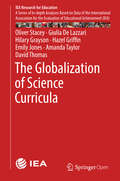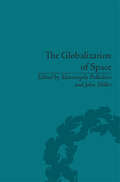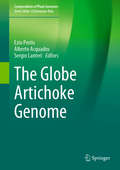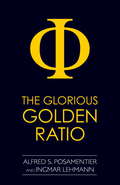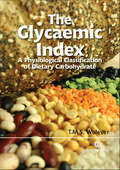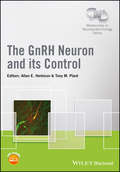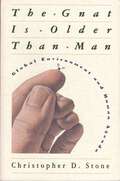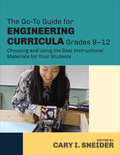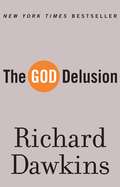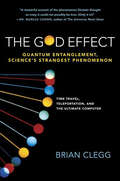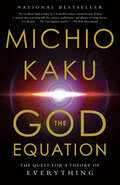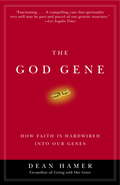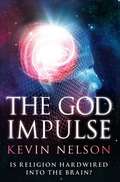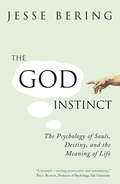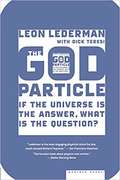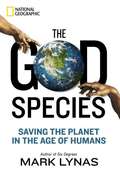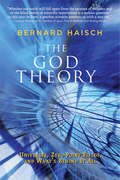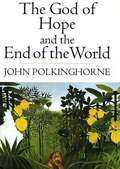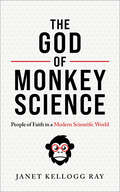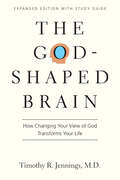- Table View
- List View
The Globalization of Science Curricula (IEA Research for Education #3)
by David Thomas Emily Jones Oliver Stacey Giulia De Lazzari Hilary Grayson Hazel Griffin Amanda TaylorGlobalization is a powerful force with far reaching impacts on education and education policy. The growth of large scale international surveys of student achievement and the increasing role played by intergovernmental agencies in education means that the influence that globalization exerts on education is likely to increase even further in the future. This open access book provides a significant and timely investigation into the impacts that globalization has exerted on science curricula in a diverse range of countries using extensive data sets collected by the IEA between 1995 and 2015. Using a combination of quantitative and qualitative methods, this book considers the extent to which there have been changes to the intended and implemented science curricula in different countries over the last 20 years. Consideration is then given as to whether science curricula are becoming increasingly similar across countries over time. Finally the issue of whether the basis of an international core curriculum can be identified is addressed. Readers will gain a unique insight into the extent to which globalization and large scale international assessments have influenced science curricula in the last 20 years within both the primary and secondary phases.
The Globalization of Space: Foucault and Heterotopia
by John MillerThe work of Michel Foucault has been influential in the analysis of space in a variety of disciplines, most notably in geography and politics. This collection of essays is the first to focus on what Foucault termed ‘heterotopias’, spaces that exhibit multiple layers of meaning and reveal tensions within society.
The Globe Artichoke Genome (Compendium of Plant Genomes)
by Ezio Portis Alberto Acquadro Sergio LanteriThis book presents the latest information on the genetics and genomics of the globe artichoke. It focuses on the latest findings, tools and strategies employed in genome sequencing, physical map development and QTL analyses, as well as genomic resources. The re-sequencing of four globe artichoke genotypes, representative of the core varietal types in cultivation, as well as the genotype of cultivated cardoon, has recently been completed. Here, the five genomes are reconstructed at the chromosome scale and annotated. Moreover, functional SNP analyses highlight numerous genetic variants, which represent key tools for dissecting the path from sequence variation to phenotype, as well as for designing effective diagnostic markers. The wealth of information provided here offers a valuable asset for scientists, plant breeders and students alike.
The Glorious Flight: Across the Channel with Louis Bleriot July 25, 1909
by Alice Provensen Martin ProvensenWinner of the Caldecott Medal, this stunningly illustrated book depicts Louis Bleriot's historic first cross-Channel flight.
The Glorious Golden Ratio
by Alfred S. PosamentierWhat exactly is the Golden Ratio? How was it discovered? Where is it found? These questions and more are thoroughly explained in this engaging tour of one of mathematics' most interesting phenomena. Veteran educators and prolific mathematics writers trace the appearance of the Golden Ratio throughout history and demonstrate a variety of ingenious techniques used to construct it and illustrate the many surprising geometric figures in which the Golden Ratio is embedded. Requiring no more than an elementary knowledge of geometry and algebra, the authors give readers a new appreciation of the indispensable qualities and inherent beauty of mathematics.
The Glozel Artifacts: Fact or Fake? (Fountas & Pinnell LLI Purple #Level V)
by Sarah BrockettArcheologists search out clues to the past hidden beneath the ground. The artifacts they find help them piece together knowledge about people who lived long ago.
The Glycaemic Index: A Physiological Classification of Dietary Carbohydrate
by Thomas M. S. WoleverThe glycaemic index (GI) is a measure of the ability of a food to raise blood sugar. Written by one of the co-inventors of the term, this is a clear and balanced review of current knowledge on this controversial concept. The book explores all the key issues of the definition of the GI, how to measure the GI of a food, how to apply GI information to meals and diets, the reasons why foods have different GI values and the impact of altering a diet GI on health and disease. The book highlights the benefits and the problems surrounding the GI concept, while encouraging readers to think critically about the issues involved.
The GnRH Neuron and its Control (Wiley-INF Masterclass in Neuroendocrinology Series)
by Tony M. Plant Allan E. HerbisonThe GnRH Neuron and its Control examines the developmental biology of GnRH neurons including their birth in the nasal placode of the early embryo, perinatal programming, and sexual differentiation, in addition to the hypothalamic mechanisms that control GnRH neurons in adulthood to generate pulsatile and surge modes of GnRH secretion throughout the major life stages including aging. The morphology, electrophysiology, signal transduction pathways, transcriptional regulators, and genomics underlying function of the adult GnRH neuron is discussed in detail, as is the neuroendocrinology and cell biology governing the generation of both modes of GnRH release. The book also reviews the neurobiological mechanisms and circuitry responsible for the modulation of the activity of GnRH neurons by season, stress, nutrition, and metabolism, and covers the current and potential therapeutic approaches to regulating GnRH secretion and action. Filled with newly identified research and classical fundamental knowledge to GnRH biology, it will provide students, researchers, and practitioners with an in-depth understanding of reproductive neuroendocrinology. This is the fifth volume in the Masterclass in Neuroendocrinology Series, a co- publication between Wiley and the INF (International Neuroendocrine Federation) that aims to illustrate highest standards and encourage the use of the latest technologies in basic and clinical research and hopes to provide inspiration for further exploration into the exciting field of neuroendocrinology.
The Gnat Is Older than Man: Global Environment and Human Agenda
by Christopher D. StoneWhy are globe-spanning environmental problems on the rise and what can be done about them? Christopher Stone presents a concise and balanced overview of the risks, from climate change and ozone depletion to deforestation and biodiversity loss. Exploring the institutional framework, Stone shows why global problems do not always benefit from "global solutions," how environmental diplomacy has to account for the growing tensions between rich and poor nations, and why even checking population growth would not heal the planet. Stone's latest work, at once theoretical and realistic, is a major contribution to our understanding of one of humanity's greatest challenges.
The Go-To Guide for Engineering Curricula, Grades 9-12: Choosing and Using the Best Instructional Materials for Your Students
by Cary I. SneiderHow to engineer change in your high school science classroom With the Next Generation Science Standards, your students won’t just be scientists—they’ll be engineers. But you don’t need to reinvent the wheel. Seamlessly weave engineering and technology concepts into your high school math and science lessons with this collection of time-tested engineering curricula for science classrooms. Features include: A handy table that leads you straight to the chapters you need In-depth commentaries and illustrative examples A vivid picture of each curriculum, its learning goals, and how it addresses the NGSS More information on the integration of engineering and technology into high school science education
The Go-To Guide for Engineering Curricula, Grades 9-12: Choosing and Using the Best Instructional Materials for Your Students
by Cary I. SneiderHow to engineer change in your high school science classroom With the Next Generation Science Standards, your students won’t just be scientists—they’ll be engineers. But you don’t need to reinvent the wheel. Seamlessly weave engineering and technology concepts into your high school math and science lessons with this collection of time-tested engineering curricula for science classrooms. Features include: A handy table that leads you straight to the chapters you need In-depth commentaries and illustrative examples A vivid picture of each curriculum, its learning goals, and how it addresses the NGSS More information on the integration of engineering and technology into high school science education
The God Delusion
by Richard DawkinsA preeminent scientist -- and the world's most prominent atheist -- asserts the irrationality of belief in God and the grievous harm religion has inflicted on society, from the Crusades to 9/11.With rigor and wit, Dawkins examines God in all his forms, from the sex-obsessed tyrant of the Old Testament to the more benign (but still illogical) Celestial Watchmaker favored by some Enlightenment thinkers. He eviscerates the major arguments for religion and demonstrates the supreme improbability of a supreme being. He shows how religion fuels war, foments bigotry, and abuses children, buttressing his points with historical and contemporary evidence. The God Delusion makes a compelling case that belief in God is not just wrong but potentially deadly. It also offers exhilarating insight into the advantages of atheism to the individual and society, not the least of which is a clearer, truer appreciation of the universe's wonders than any faith could ever muster.
The God Effect: Quantum Entanglement, Science's Strangest Phenomenon
by Brian Clegg“A marvelously clear and engaging account of . . . the deepest mysteries of the quantum world and [converting] them into a useful technology.” —Gregory Chaitin, author of Meta Math! The Quest for OmegaWhat is entanglement? It’s a connection between quantum particles, the building blocks of the universe. Once two particles are entangled, a change to one of them is reflected—instantly—in the other, be they in the same lab or light-years apart. So counterintuitive is this phenomenon and its implications that Einstein himself called it “spooky” and thought that it would lead to the downfall of quantum theory. Yet scientists have since discovered that quantum entanglement, the “God Effect,” was one of Einstein’s few mistakes.What does it mean? The possibilities offered by a fuller understanding of the nature of entanglement read like something out of science fiction: communications devices that could span the stars, codes that cannot be broken, computers that dwarf today’s machines in speed and power, teleportation, and more.In The God Effect, veteran science writer Brian Clegg has written an exceptionally readable (and equation-free) account of entanglement, its history, and its application. Those interested in the marvelous possibilities coming down the quantum road will find much to marvel, illuminate, and delight.“Clegg does an excellent job of explaining this complex situation in nontechnical terms . . . implications for future technological advances are huge, and Clegg is at his finest as he embeds potential advances in a broad historical context.” —Publishers Weekly“Well organized and succinct. . . . will fascinate [students].” —School Library Journal“Delightful. . . . The author does a superb job of presenting the story of a remarkable concept . . . in a relaxed and entertaining style.” —Professor Artur Ekert, Leigh Trapnell Professor of Quantum Physics, Cambridge University
The God Equation: The Quest for a Theory of Everything
by Michio Kaku#1 NEW YORK TIMES BESTSELLER • The epic story of the greatest quest in all of science—the holy grail of physics that would explain the creation of the universe—from renowned theoretical physicist and author of The Future of the Mind and The Future of Humanity.When Newton discovered the law of gravity, he unified the rules governing the heavens and the Earth. Since then, physicists have been placing new forces into ever-grander theories. But perhaps the ultimate challenge is achieving a monumental synthesis of the two remaining theories—relativity and the quantum theory. This would be the crowning achievement of science, a profound merging of all the forces of nature into one beautiful, magnificent equation to unlock the deepest mysteries in science: What happened before the Big Bang? What lies on the other side of a black hole? Are there other universes and dimensions? Is time travel possible? Why are we here? Kaku also explains the intense controversy swirling around this theory, with Nobel laureates taking opposite sides on this vital question. It is a captivating, gripping story; what&’s at stake is nothing less than our conception of the universe. Written with Kaku&’s trademark enthusiasm and clarity, this epic and engaging journey is the story of The God Equation.
The God Gene
by Dean HamerLEADING GENETICIST DEAN HAMER CRACKS THE "CODE" BEHIND WHY WE ARE PREDISPOSED TO BELIEVE IN GOD. IN A BOOK THAT BRIDGES THE GAP BETWEEN RELIGION AND SCIENCE," HAMER BRILLIANTLY ILLUMINATES HOW OUR INCLINATION TOWARD FAITH IS INFLUENCED BY OUR GENES. The overwhelming majority of Americans believe in God, expressing a conviction that has existed since the beginning of recorded time and is shared by billions around the world. In "The God Gene, Dr. Dean Hamer reveals that this inclination toward religious faith is no accident; it is in good measure due to our genes. In fact, he argues, spiritual belief may offer an evolutionary advantage by providing humans with a sense of purpose and the courage and will to overcome hardship and loss. And, as a growing body of evidence suggests, belief also increases our chances of reproductive survival by helping to reduce stress, prevent disease, and extend life. Hamer shows that new discoveries in behavioral genetics and neurobiology indicate that humans inherit a set of predispositions that make their brains ready and eager to embrace a higher power. By analyzing the genetic makeup of over a thousand people of different ages and backgrounds, and comparing their DNA samples against a scale that measures spirituality, Hamer actually identified a specific "God gene" that appears to influence spirituality. Popular science at its best, "The God Gene is an in-depth, fully accessible inquiry into the cutting-edge research that is changing the way we think about ourselves, our world, and our culture. Written with balance and integrity, without seeking to confirm or deny the existence of God, "The God Gene brilliantly illuminates the mechanismby which belief itself is biologically fostered. It's a book that bridges the gap between science and religion, and one that will appeal to the readers of Genesis and "Genome alike.
The God Impulse: Is Religion Hardwired into the Brain?
by Kevin NelsonWhy do people have near-death experiences? Are there physical explanations for those out-of-body sensations and tunnels of light? And what about moments of spiritual ecstasy? If Buddha had been in an MRI machine and not under the Bodhi tree when he attained enlightenment, what would we have seen on the monitor? In THE GOD IMPULSE, Kevin Nelson, a neurologist with three decades' experience examining the biology behind human spirituality, deconstructs the spiritual self, uncovering its origin in the most primitive areas of our brain. Through his revolutionary studies on near-death experience, Nelson has discovered that spiritual experience is an incidental product of several different neurological processes acting independently. When we feel close to God or sense the presence of departed relatives, we may believe that we are standing at the border of this world and the next as individual, autonomous, rational creatures--touching God. The reality is far different: our brain function resembles a Cubist painting by Picasso or Braque, and the experiences we regard as the height of our humanity are in fact produced by primal reflexes. THE GOD IMPULSE takes us on a journey into what Nelson calls the borderlands of consciousness. The book offers the first comprehensive, empirically-tested, peer-reviewed examination of the reasons we are capable of near-death experience, out-of-body experience, and the mystical states produced by hallucinogenic drugs.
The God Instinct: The Psychology of Souls, Destiny and the Meaning of Life
by Jesse BeringThe God Instinct explores how people's everyday thoughts, behaviours and emotions betray an innate tendency to reason as though God were deeply invested in their public lives and secret affairs.In this entertaining and thought-provoking book, Jesse Bering unravels the evolutionary mystery of why we grapple for meaning, purpose and destiny in life. He argues that God is not merely an idea to be entertained or discarded based on the evidence. Nor is God a cultural invention, an existential band-aid, an opiate of the masses. Instead, Bering proposes, God is a way of thinking - one that evolved through our ancestors, millions of years ago, to keep us in check and give us the edge on our competitors.While a belief in higher forces may seem ridiculous to some, The God Instinct shows that it is hardwired into our genetic make-up, and carries with it massive evolutionary benefits.
The God Part of the Brain: A Scientific Interpretation of Human Spirituality and God
by Matthew AlperAre human beings hard-wired to believe in God? If so, what would the consequences be and how would such hard-wiring impact mankind's belief in eternal life, morality, and a sovereign God?
The God Particle: If the Universe Is the Answer, What Is the Question?
by Leon Lederman with Dick TeresiDid you know that the most creative companies have centralized bathrooms? That brainstorming meetings are a terrible idea? That the color blue can help you double your creative output? From the New York Times best-selling author of How We Decide comes a sparkling and revelatory look at the new science of creativity. Shattering the myth of muses, higher powers, even creative "types," Jonah Lehrer demonstrates that creativity is not a single gift possessed by the lucky few. It's a variety of distinct thought processes that we can all learn to use more effectively. Lehrer reveals the importance of embracing the rut, thinking like a child, daydreaming productively, and adopting an outsider's perspective (travel helps). He unveils the optimal mix of old and new partners in any creative collaboration, and explains why criticism is essential to the process. Then he zooms out to show how we can make our neighborhoods more vibrant, our companies more productive, and our schools more effective.You'll learn about Bob Dylan's writing habits and the drug addictions of poets. You'll meet a Manhattan bartender who thinks like a chemist, and an autistic surfer who invented an entirely new surfing move. You'll see why Elizabethan England experienced a creative explosion, and how Pixar's office space is designed to spark the next big leap in animation. Collapsing the layers separating the neuron from the finished symphony, Imagine reveals the deep inventiveness of the human mind, and its essential role in our increasingly complex world.
The God Species
by Mark LynasWe humans are the God species, both the creators and destroyers of life on this planet. As we enter a new geological era - the Anthropocene - our collective power now overwhelms and dominates the major forces of nature. But from the water cycle to the circulation of nitrogen and carbon through the entire Earth system, we are coming dangerously close to destroying the planetary life-support systems that sustain us. In this controversial new book, Royal Society Science Books Prize winner Mark Lynas shows us how we must use our new mastery over nature to save the planet from ourselves. Taking forward the work of a brilliant new group of Earth-system scientists who have mapped out our real 'planetary boundaries', Lynas draws up a radical manifesto calling for the increased use of environmentally-friendly technologies like genetic engi- neering and nuclear power as part of a global effort to use humanity's best tools to protect and nurture the biosphere. Ecological limits are real, but economic limits are not, Lynas contends. We can and must feed a richer population of nine billion people in decades to come, whilst also respecting the nine planetary boundaries - from biodiversity to ocean acidification - now identified and quantified by scientists. Ripping up years of environmental orthodoxy, he reveals how the prescriptions of the current green movement are likely to hin- der as much as help our vitally-needed effort to use science and technology to play God and save the planet. From the Hardcover edition.
The God Theory: Universes, Zero-Point Fields and What's Behind it All
by Bernard HaischThe author, an astrophysicist, rejects dogmatic materialism and argues for the theory that an infinite consciousness is the underlying reality.
The God Theory: Universes, Zero-Point Fields, and What's Behind It All
by Bernard HaischOn the one hand, we have traditional science, based on the premises of materialism, reductionism, and randomness, with a belief that reality consists solely of matter and energy, that everything can be measured in the laboratory or observed by a telescope. If it can't, it doesn't exist. On the other hand, we have traditional religious dogma concerning God that fails to take into account evolution, a 4.6 billion-year-old Earth, and the conflicting claims of the world's religions. In The God Theory, Bernard Haisch discards both these worldviews and proposes a theory that provides purpose for our lives while at the same time is completely consistent with everything we have discovered about the universe and life on Earth. To wit, Newton was right -- there is a God -- and wrong -- this is not merely a material world. Haisch proposes that science will explain God and God will explain science. Consciousness is not a mere epiphenomenon of the brain; it is our connection to God, the source of all consciousness. Ultimately it is consciousness that creates matter and not vice versa. New discoveries in physics point to a background sea of quantum light underlying the universe. The God Theory offers a worldview that incorporates cutting-edge science and ancient mystical knowledge. This is nothing less than a revolution in our understanding.
The God of Hope and the End of the World
by John PolkinghorneIn this engaging book, a leading scientist-theologian draws on ideas from science, scripture, and theology to address the question of hope and disillusionment found in the bible and other sources.
The God of Monkey Science: People of Faith in a Modern Scientific World
by Janet Kellogg RayHow to hold true to your faith and embrace modern scienceEver since the Scopes Monkey Trial in the early twentieth century, American evangelicals have considered scientists public enemy #1. But this antipathy to modern science turned deadly during the COVID-19 crisis, when white evangelicals snubbed precautions and vaccines. Herself an evangelical Christian and a science educator, Janet Kellogg Ray explains how we got here and how to fix it.As the follow-up to Baby Dinosaurs on the Ark?, this lively volume covers evolution as well as the coronavirus pandemic, vaccines, climate change, and the frontiers of genetic research. Ray explains the facts accessibly and with verve. Along the way, she vividly narrates the scientific achievements—and political and religious drama—that got us to where we are today.Ultimately, Ray calls for evangelicals to speak to science, rather than deny it. We need Christian ethics now more than ever to determine how best to act in light of current scientific data and for love of neighbor. If you&’re afraid of science hurting your faith, this book will show you how to be true to both.
The God-Shaped Brain: How Changing Your View of God Transforms Your Life
by Timothy R. JenningsWhat you believe about God actually changes your brain. Brain research in neuroscience has found that our thoughts and beliefs affect our physical, mental, and spiritual health. Mind and body are interrelated, and we are designed for healthy relationships of love and trust. When we understand God as good and loving, we flourish. Unfortunately, many of us have distorted images of God and mostly think of him in fearful, punitive ways. This leads us into unhealthy patterns of self-defeating behaviors and toxic relationships. But our lives can change when God renews our minds with a truer picture of him. Psychiatrist Tim Jennings unveils how our brains and bodies thrive when we have a healthy understanding of who God is. He dispels common misconceptions about God and shows how different God concepts affect the brain differently. Our brains can adapt, change, and rewire with redeemed thinking that frees us from unnecessary pain and suffering. Discover how neuroscience and Scripture come together to bring healing and transformation to our lives. This expanded edition now includes a study guide for individual reflection or group discussion, with questions for learning from Scripture, science and nature, and experience.
